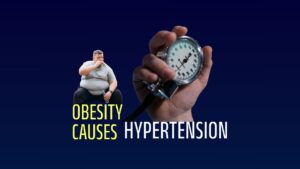
Vidhi Dave
Bariatric Dietician & Content Writer
Managing heartburn after Gastric Sleeve Surgery: Tips for a comfortable recovery

Beginning the process of getting gastric sleeve surgery is a significant step in regaining control of your health, making significant changes in your life, and losing weight in a way that will last. It’s a road paved with optimism and opportunity, but just like any other trip, it could take some unexpected detours and turns along the way. If you do not pay adequate attention to the guidelines set by your dietitian and bariatric surgeon, you face the risk of developing heartburn after having gastric sleeve surgery.
Heartburn is a challenge that can be properly managed, allowing you to continue your path toward a better and happier version of yourself even though it may seem like an unwelcome friend on your trip to lose weight.
Acid reflux, often known as heartburn, is a condition in which a burning sensation is felt behind the sternum, or breastbone, in the middle of the chest. This burning sensation is generated by stomach acid traveling up towards the neck.It’s also possible that you’ll feel it in your throat.
In addition to that:
You report discomfort in your chest whether bending over or lying down.
Have a taste in the very back of your throat that is either hot, acidic, bitter, or salty.
Find it difficult to chew and swallow.
What is a Gastric Sleeve?
The operation known as sleeve gastrectomy, which also goes by the name gastric sleeve surgery, falls under the category of bariatric surgery. It takes out a significant amount of your stomach, leaving behind only a long and narrow “sleeve.” By reducing the size of your stomach, you can cut back on calories and lessen the signals that tell you that you are hungry. People who have obesity are considered to be clinically significant may be candidates for this procedure, which is offered in order to assist them in losing weight effectively.
Advantages Sleeve Gastrectomy
The simple process of decreasing the size of your stomach might limit the quantity of food you are able to consume in a single sitting, which in turn can cause you to experience feelings of fullness more rapidly. However, it also has another goal, which is to lessen the amount of hunger hormones that your stomach is able to create. This helps to suppress both your appetite and your cravings, and it also has the potential to protect you from the kinds of urges that lead people to gain back the weight they’ve lost.
5 Ways to Manage Heartburn After Gastric Sleeve Surgery
Eat smaller meals more frequently.
After having gastric sleeve surgery, eating smaller meals more frequently can be one of the most effective strategies to reduce heartburn symptoms. As a result, you’ll feel less pressure in your stomach and less food will come back up into your esophagus. Because you are not stuffing yourself with excessive amounts of food all at once, this method also helps prevent bloating.
You can expect to lose more weight if you follow this advice, which is also the best practice for eating following bariatric surgery in general.
Pay Attention to the Food-Related Triggers
You should also avoid some foods because they could make your heartburn worse. These include foods like peppermint, garlic, and onions, as well as greasy or fried foods, chocolate, caffeinated beverages like coffee and soda etc.
Avoid Eating Right Before Bedtime
You should also make sure to remain upright for at least three hours after eating, and you should try your best not to lie down soon away, since doing so can increase the amount of acid reflux that you suffer after having gastric sleeve surgery. In situations where lying down is unavoidable, elevating your bed using blocks or even just stacking books may prove to be helpful.
Put an end to such harmful routines.
You should also give up any habits that are known to cause acid reflux, as challenging as this may sound given the fact that you will be through so many other lifestyle adjustments after surgery. This includes drinking alcohol and using tobacco products. Do not be hesitant to seek the assistance of a therapist if you believe that this could be a difficult experience for you.
Do not skip any meals:
It is important to schedule your meals and snacks at regular intervals throughout the day, with the goal of having a meal around every two to three hours. This can be in the form of a regular routine, such as eating breakfast, a snack in the middle of the morning, lunch, and an afternoon snack before dinner. Chew your meal fully by taking your time and thoroughly chewing it. It’s important to chew your food thoroughly because it helps digestion and lowers your chances of pain and heartburn.
Modifying your diet, increasing your water intake, and possibly taking medication can help alleviate heartburn symptoms. Keep in mind that your experience will be different from anyone else’s, making it even more important to communicate openly and frequently with your bariatric surgeon and dietician as you work together to create a customized plan.
Aastha Bariatrics is committed to the healing arts that support and enhance the lives of people who are overweight or obese. Community health is prioritized at this wellness center, and patients are treated with compassion, decency, and respect while they get high-quality, individualized care.





